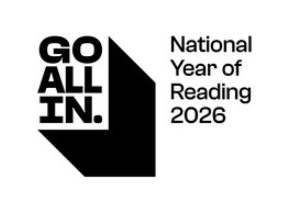
Request a full Catch Up® information brochure and details of our free information webinars
Find out moreAnyone else out there drowning in new buzz words in education? Are you completely up to speed on gamification and AI-driven individualised learning for pupils? We have to admit that we sometimes feel that all the new jargon is making our heads spin!! Is it all a bit of a gimmick? Or are they really valuable practices that will enhance our teaching?
Often in the classroom we are too busy getting on with teaching to stop and reflect on how we teach and, just as importantly, how learners learn.

Here at Catch Up we love reading! Whether that is from a book, a comic, a screen or a poster – we are most definitely ready to ‘Go All In’!
‘Whatever you’re into, get ready to Go All In’ is one of the slogans from the UK-wide campaign, the National Year of Reading 2026! The campaign aims to help people of all ages re-discover the joy of reading and use their interests and passions as a starting point!
Spring Term dates are now available for our live online Review and Refresh sessions, for Catch Up® Literacy and Catch Up® Numeracy.
Designed for those who attended Catch Up® training over six months ago and who now have experience of delivering the intervention, the Review and Refresh online session offers you a great opportunity to share how your practice is going, and to get further guidance and advice from a Catch Up® Accredited Trainer (and other trainees!).
Dear All,
As we reach the end of 2025 and take time to reflect upon the year, we recognise that it has been a very busy one for many of us, with very familiar challenges, but also wonderful, positive outcomes for the struggling learners we all support.
We have been delighted to welcome many new trainees to deliver the Catch Up® interventions and been pleased to have past trainees return to delivery as well. As schools continue to work tirelessly on closing the attainment gap, in a challenging time, we know that the Catch Up® interventions can support progress, and with your help the word is spreading.
Congratulations to Trelewis Primary School, who are the first to be awarded a Platinum Excellence Award for Literacy.
They have been using Catch Up® Literacy since 2006 and have achieved great results for their struggling learners.
They have been using it ”…due to the good value for money that it provides and the success rate of progress for individual pupils it has remained a standard intervention to the present day.”
(Lisa Robertson, Intervention Coach)
Catch Up® is the working name of The Caxton Trust, a not-for-profit charity registered in England and Wales (1072425) and Scotland (SC047557) as well as a company limited by guarantee (03476510). Catch Up is a registered trademark.
The Catch Up® Web site use "cookies" to help you personalise your online experience. A cookie is a text file that is placed on your hard disk by a Web page server. Cookies cannot be used to run programs or deliver viruses to your computer. Cookies are uniquely assigned to you, and can only be read by a web server in the domain that issued the cookie to you.
Click on the different category headings below to find out more. You can change your default settings very easily. To turn cookies on, click the button to the right. To turn cookies off, click the buttons to the left. Please read our cookie policy to find out more.
Performance monitoring cookies: Google Analytics cookies (_ga,_gid) - these can last up to 2 years.
Strictly necessary cookies used by the site content management system: PHPSESSID (used to record your logged in session) and allow_cookies (used to record that the user has consented to cookies) - these are either temporary (session) cookies or expire after no more than 30 minutes and are used to provide functionality as you navigate around the site and allow you to access secure areas.